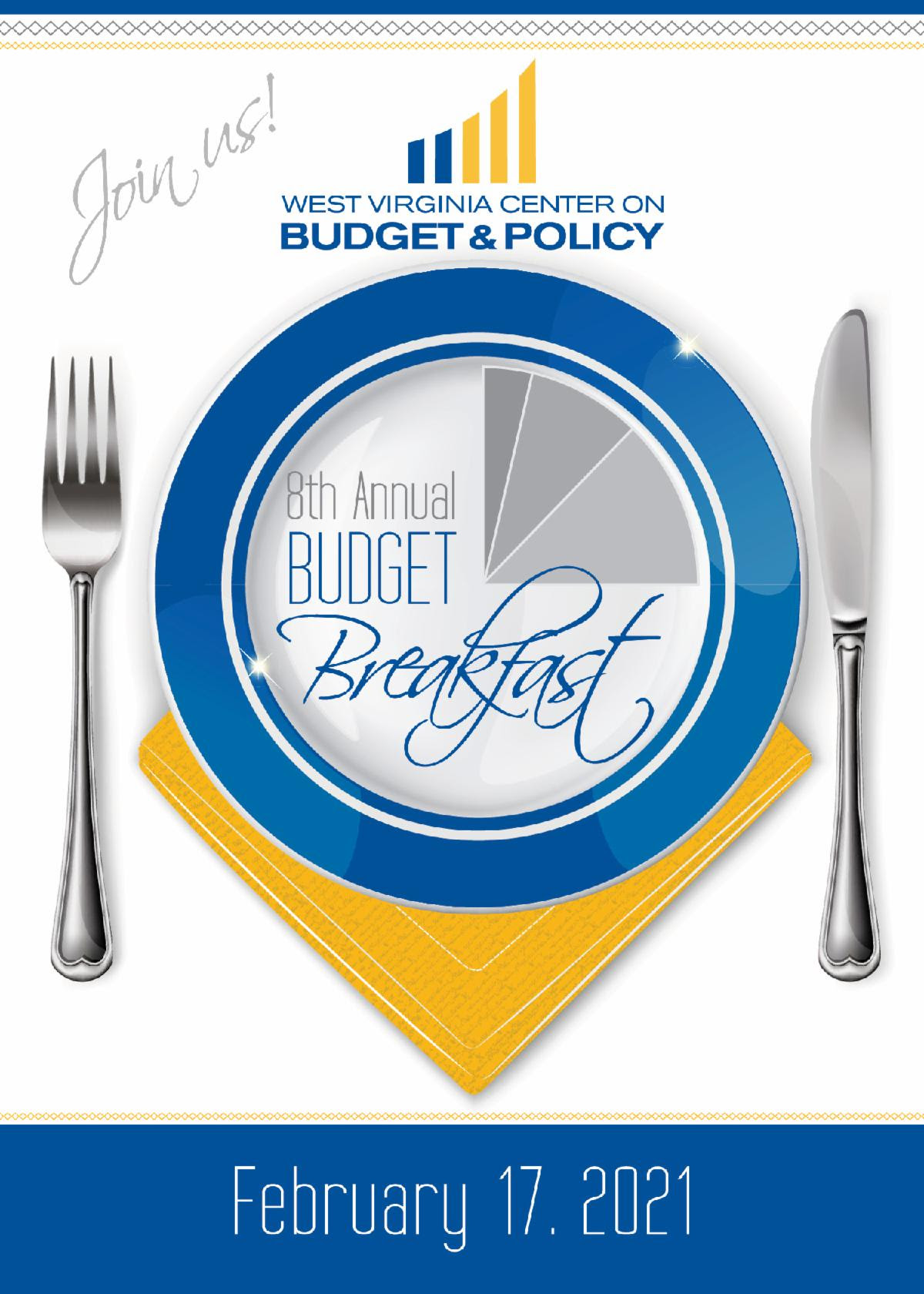Last week’s blog post explored how eliminating the income tax in West Virginia would overwhelmingly benefit the wealthy, and that replacing just half the revenue lost with an increased sales tax would result in a substantial tax shift, with low- and middle-income West Virginians seeing a tax increase in order to pay for a tax cut for the wealthy.
Lawmakers and advocates who support reducing or eliminating state personal income taxes often claim that a tax system where the rich pay less and the poor pay more will spur economic growth. This is usually accompanied with an assertion that a state without an income tax is booming economically, and West Virginia is just one tax cut away from robust economic growth.
However, similar to claims about business tax cuts leading to economic growth, claims that income tax cuts lead to economic growth do not hold water. One simple way to demonstrate this is to compare economic performances of the nine states without a broad-based income tax with the nine states with the highest income tax rates. And we find that, despite the wide difference in tax structures, where differences in economic performances should be most pronounced, there is little difference in economic performance between states with no income taxes and states with high income taxes across a broad array of economic indicators.
The past 10 years represent thelongest economic expansion on record, with the country growing slowly but steadily from the end of the Great Recession in 2009 all the way up until the pandemic in 2020. And during that expansion, the nine states with the highest top income tax rates have seen virtually identical — and in some measures, greater — economic growth than the nine states without income taxes.
Read Sean’s full blog post.
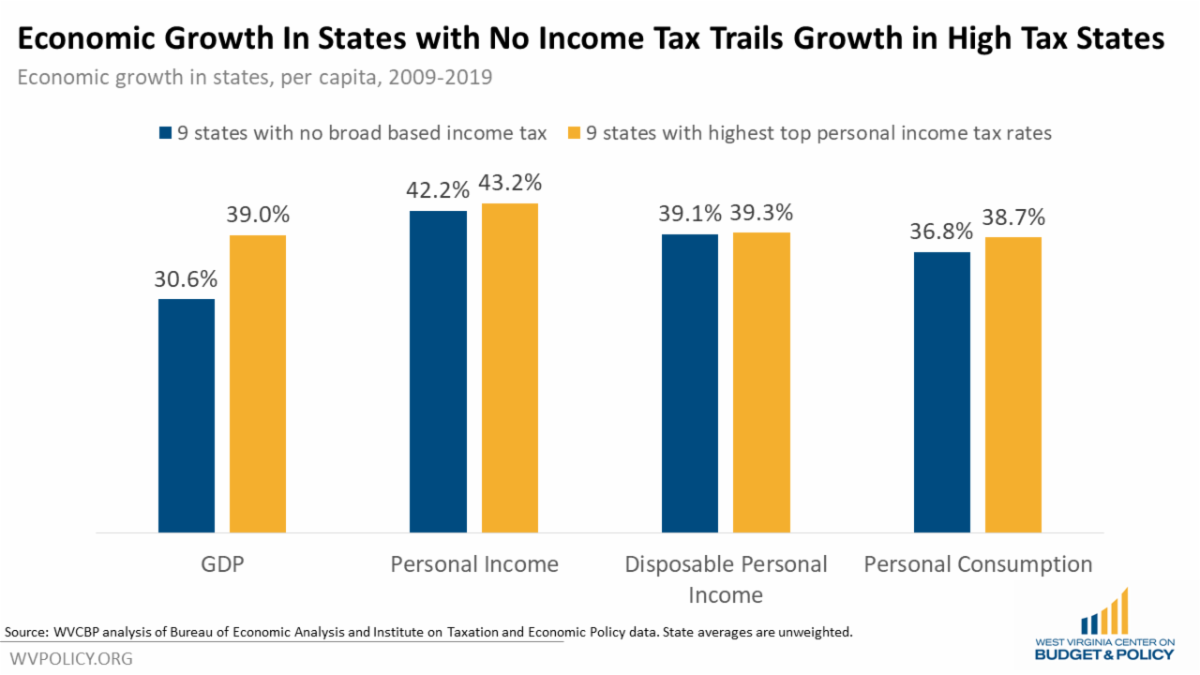
West Virginia’s local health departments have long served as the cornerstone of public health initiatives and have been crucial to the pandemic response, but recent state funding cuts have eroded their ability to serve their communities.
Despite the legislation requiring funding for four full-time employees, half of the state’s local health departments do not meet this standard. Indeed, several departments have just one full-time and one part-time administrative staff member. Between fiscal years 2010 and 2021, public health spending decreased by nearly 30 percent from 20 million to 14.2 million inflation-adjusted dollars.
Funding and subsequent staffing cuts have hurt local health departments’ pandemic response, and they have also impacted their ability to provide routine services. Many departments have found themselves performing beyond capacity, forcing them to limit or temporarily cut specific services to focus on the pandemic. Of course, this pattern hurts overall public health outcomes, especially for low-income residents with limited options.
Read Rhonda’s full blog post.
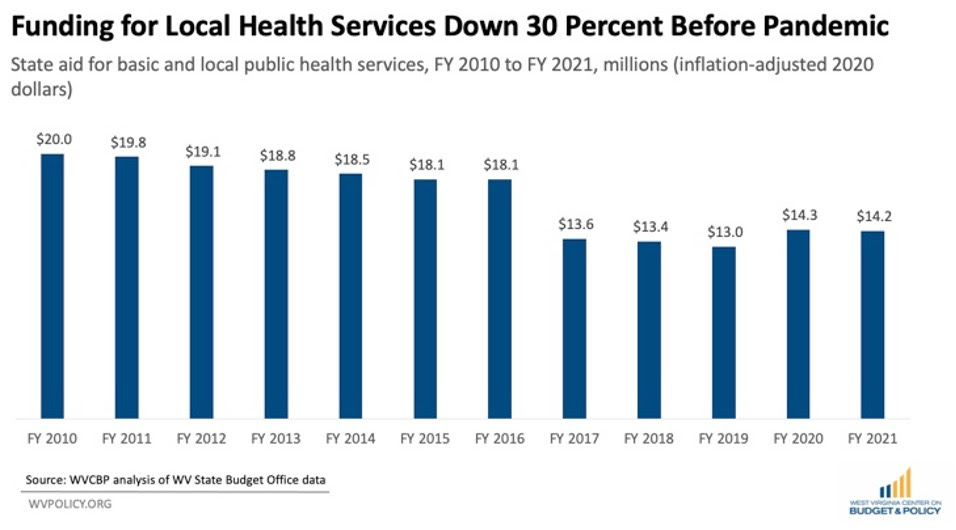
Registration is live!
Over the course of four days, participants at the West Virginia Criminal Justice Reform Summit will attend sessions exploring the significance of poverty before, during, and after incarceration. In addition to a wide variety of panels, there will be skill-building workshops as well as ample opportunity for participants to connect with one another. The conference will feature national and state-level experts, including people who have been directly impacted by the criminal justice system.
Our hope is that every participant leaves feeling more informed about the problems and solutions, more equipped to take action, and more connected. Together, we are a powerful force for change.
This summit is being hosted by the West Virginia Criminal Law Reform Coalition, of which WVCBP is a proud member.
Find more details on the summit landing page, follow the event on Facebook, and register here.
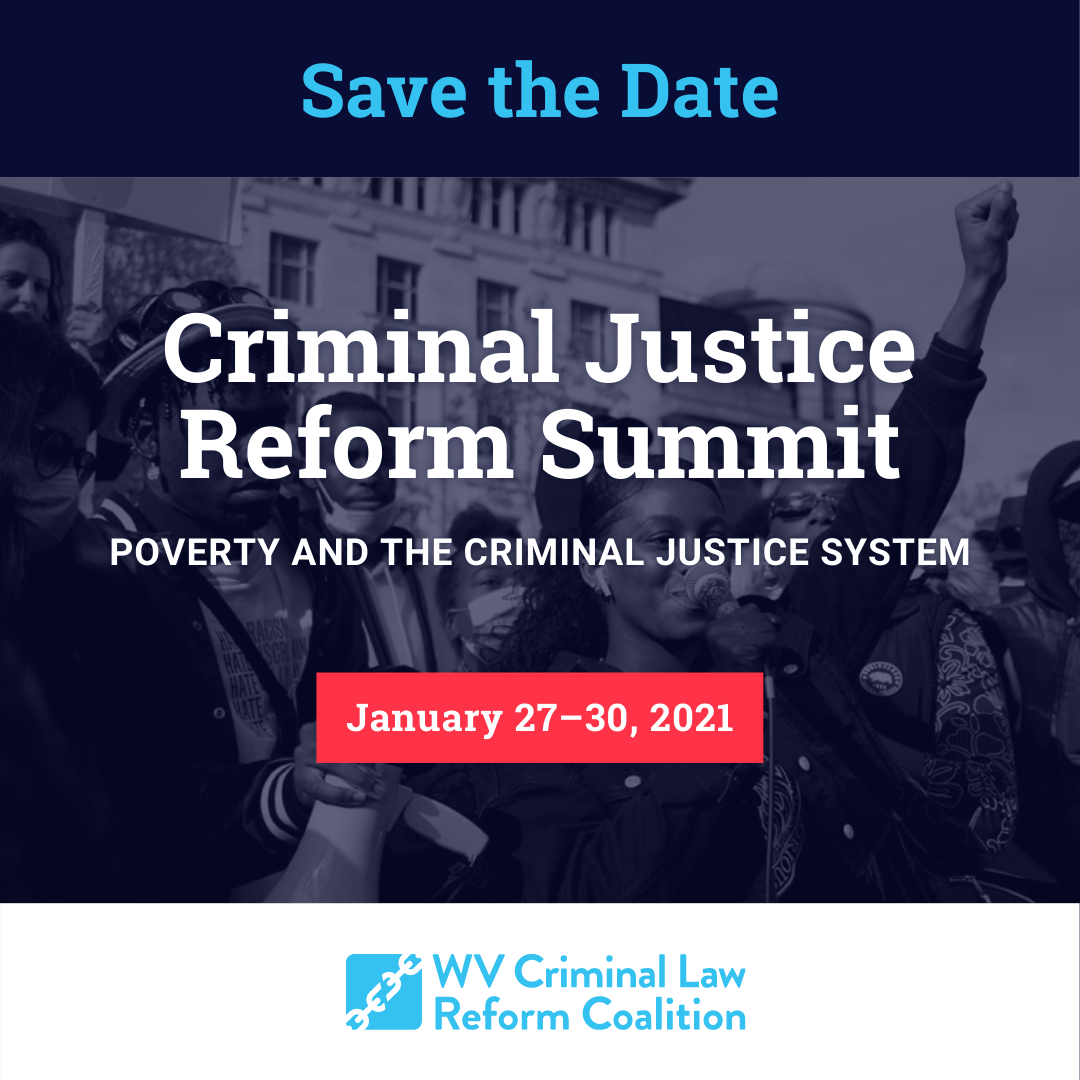
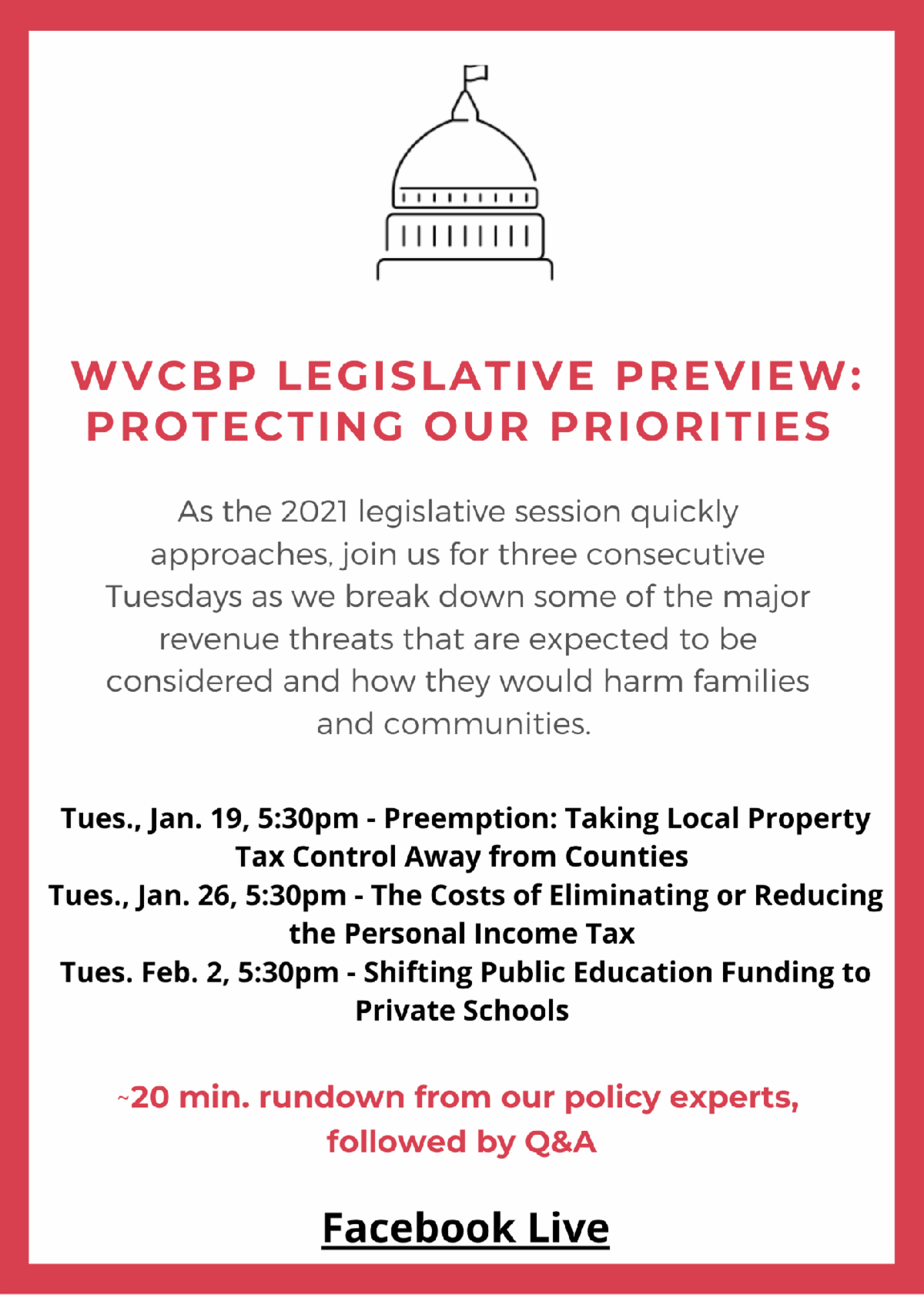
Despite being held in congregate settings known to be high-risk for the spread of COVID, incarcerated folks in WV have not been prioritized to receive the vaccine.
Correctional employees, however, have been prioritized, but over 50% have opted out of receiving the vaccine.
Our criminal justice policy analyst Quenton King was interviewed for an article on the topic recently. Find a short excerpt below:
DCR reported on Sunday that more than 950 people in regional jails were in quarantine, which DCR’s COVID-19 policy calls for when there are “incarcerated individuals who are known to have been exposed to the virus.”
“Even though they say that you can quarantine in cells, you really can’t,” King said. “It’s not like each person in a 500-capacity jail can have their own quarantine cell. It’s not how it works.”
Read the full article here.

The newly passed COVID relief package included a provision to temporarily increase the maximum Supplemental Nutrition Assistance Program (SNAP) benefit by 15%. In a recent interview with WOWK, our policy outreach director Seth DiStefano discusses what this means for West Virginia families.
He explains that this funding will amount to approximately $100 extra in federal food assistance per family per month. This funding is exceptionally needed amid an ongoing hunger crisis in the state as the pandemic persists.
But he reminds us, hunger, poverty, and joblessness were significant problems in West Virginia even prior to the start of the pandemic, and he urges state policymakers to keep this in mind as they had into the 2021 legislative session.
Watch the full interview here.

This past Tuesday, ReImagine Appalachia hosted a summit to explore how to achieve a 21st Century sustainable Appalachia and shared prosperity in the region.
The day’s events included an opening panel of experts to help us understand the national political landscape as ReImagine Appalachia makes plans to take its work to Washington, as well as an Appalachian Mayors panel.
You can find recordings of the sessions here and here.
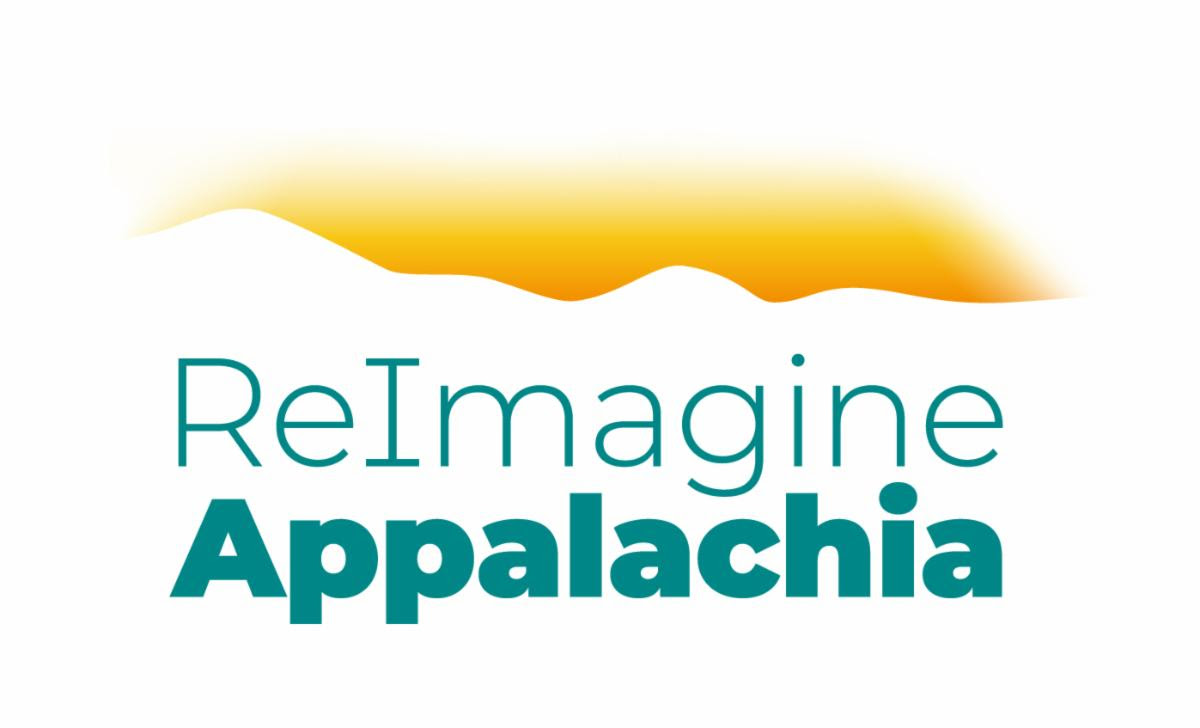
Matt Witt is the Center’s new spring research associate. Matt is a Charleston, WV native that currently resides in Morgantown, WV. He holds a bachelor’s degree in Social Work and is currently a Master of Public Administration and Master of Social Work dual-degree student at West Virginia University. He is also a graduate assistant at a nonprofit children’s museum in Morgantown. After graduation, he hopes to work in policy analysis, economic justice, and/or with nonprofits. In his free time, he enjoys being a dog dad to his sassy dog, Bayley.
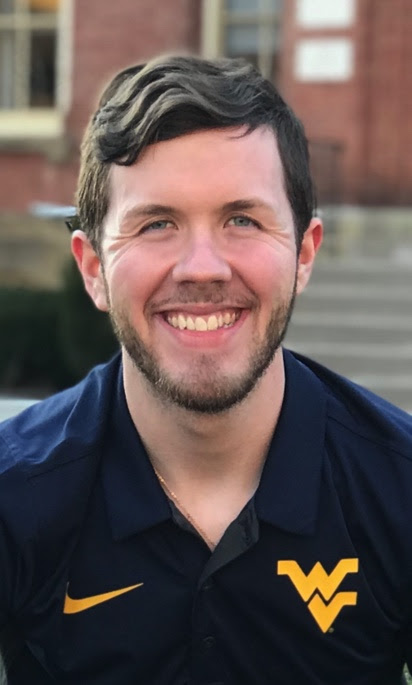
Join us for our 8th annual Budget Breakfast!
Due to COVID-19 considerations, this year’s event will be held virtually via Zoom.
WVCBP’s analysis of the Governor’s 2022 proposed budget will start at 8:00am, followed by keynote panel presentation and time for Q&A.
Our keynote panelists, Rep. Don Hineman and Duane Goossen, will highlight the failed Brownback tax experiment in Kansas and why West Virginia lawmakers should avoid going down the same path. Don Hineman is a Republican member of the Kansas House of Representatives, representing the 118th District. He has served since 2009. He was the Majority leader from 2017 to 2019. Duane Goossen is the former Kansas Secretary of Administration and the Director of the Kansas Division of the Budget. Goossen has served as the Secretary of the Kansas Department of Administration since 2004 and Director of the Kansas Division of the Budget since 1998. Goossen also served in the Kansas House of Representatives 1983 to 1997.
While attendees are welcome to join the webinar at no cost, we hope you will consider supporting the WVCBP’s work and contributing to our annual fundraiser by donating the usual cost of an in-person ticket ($50).
You can find registration here.
We hope to see you there!
